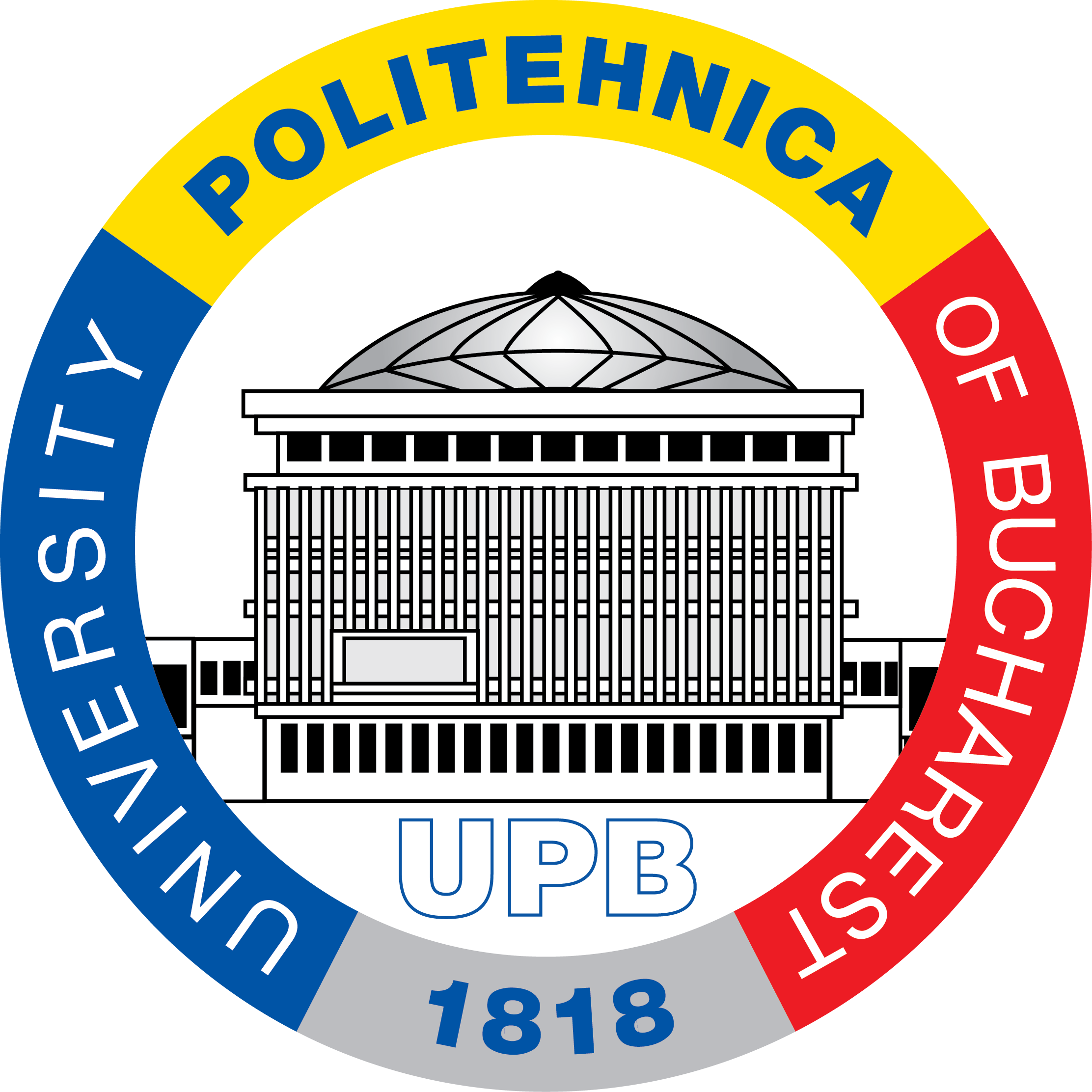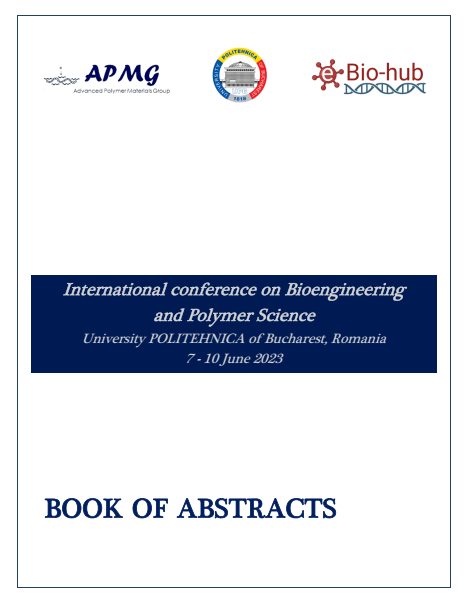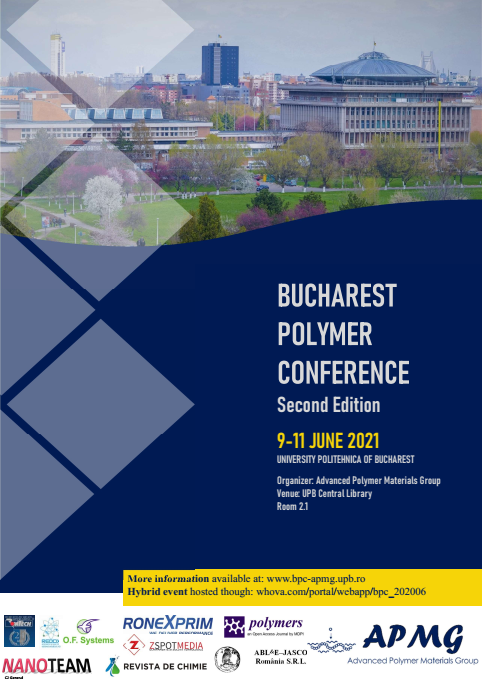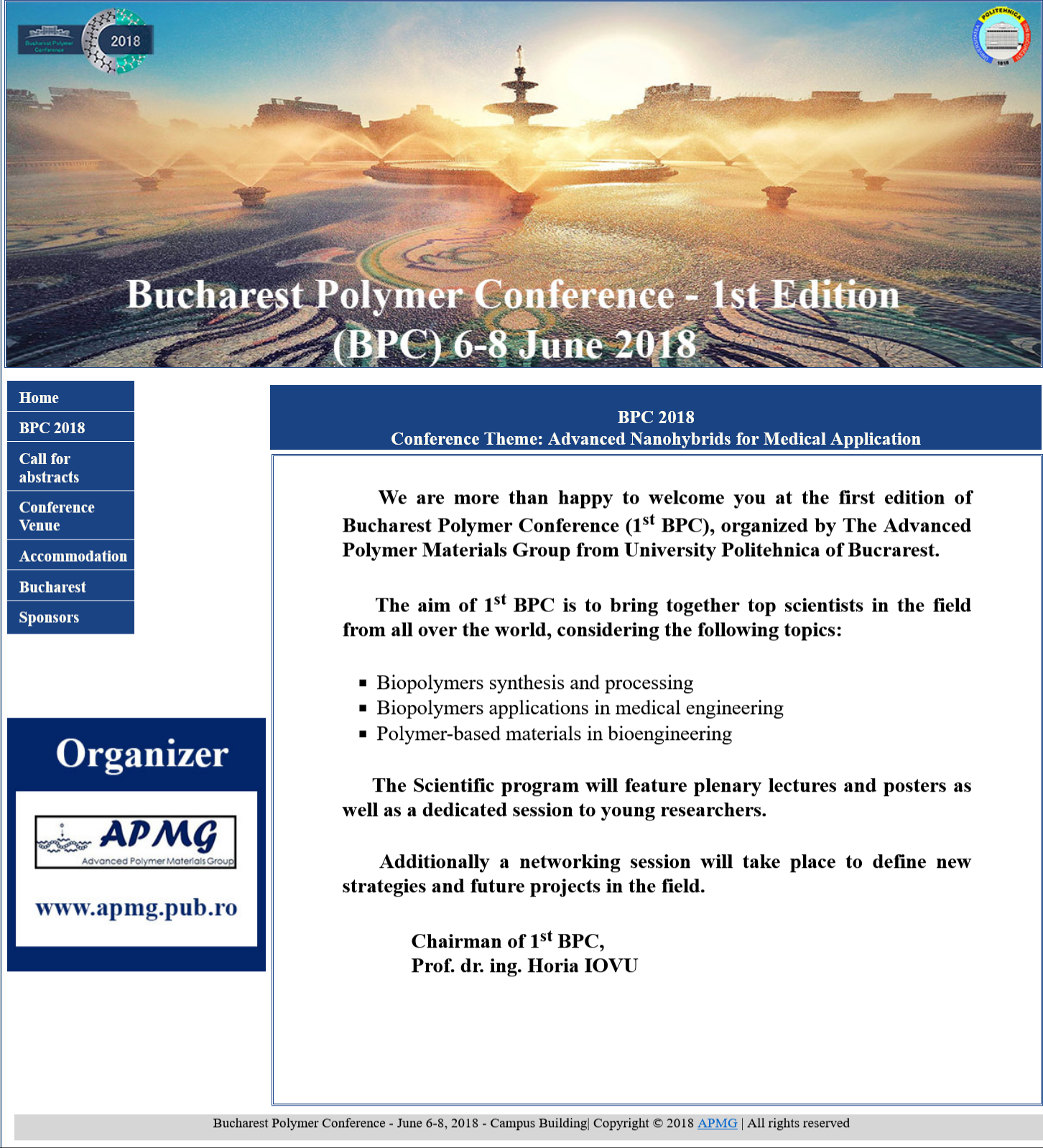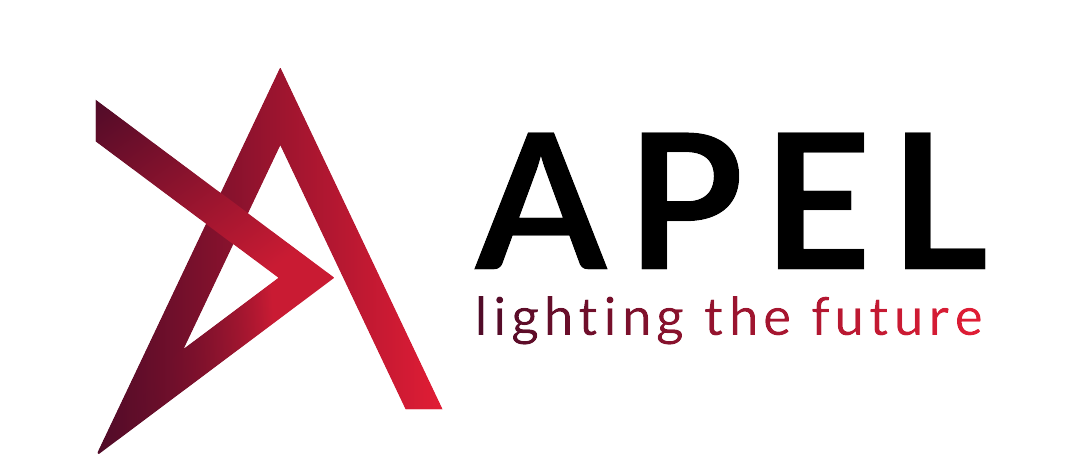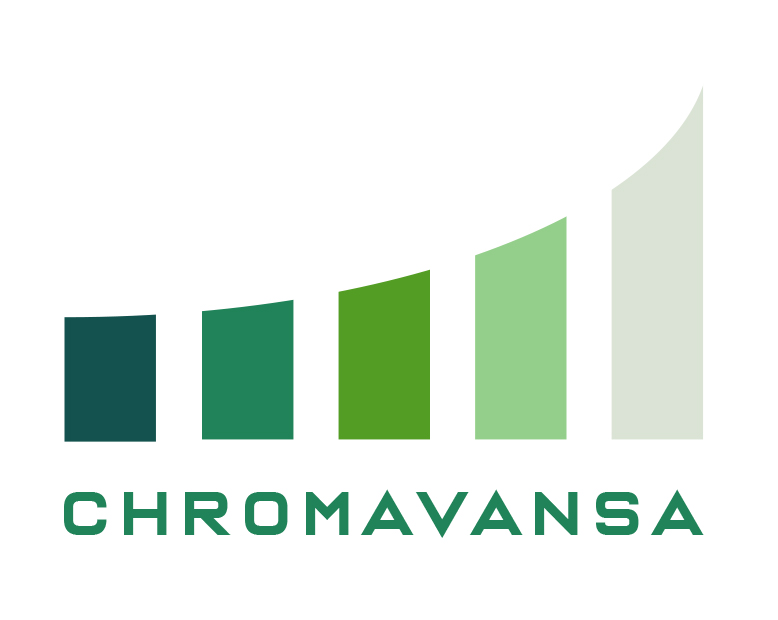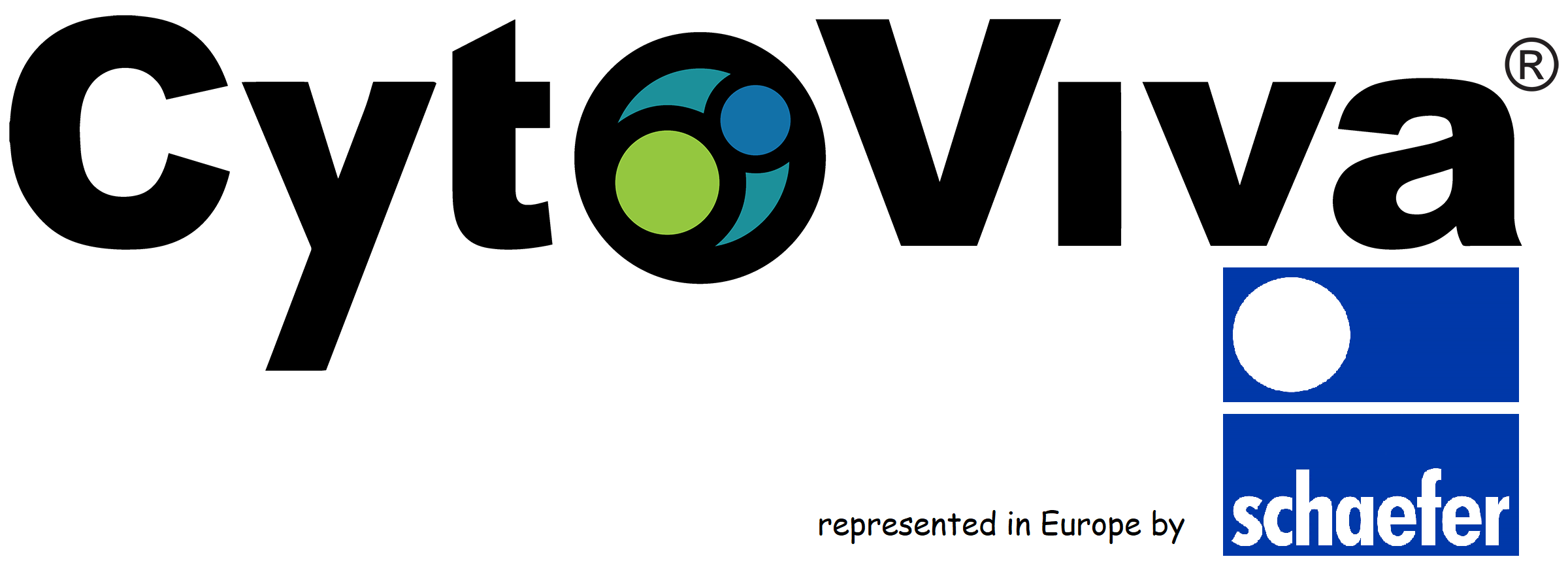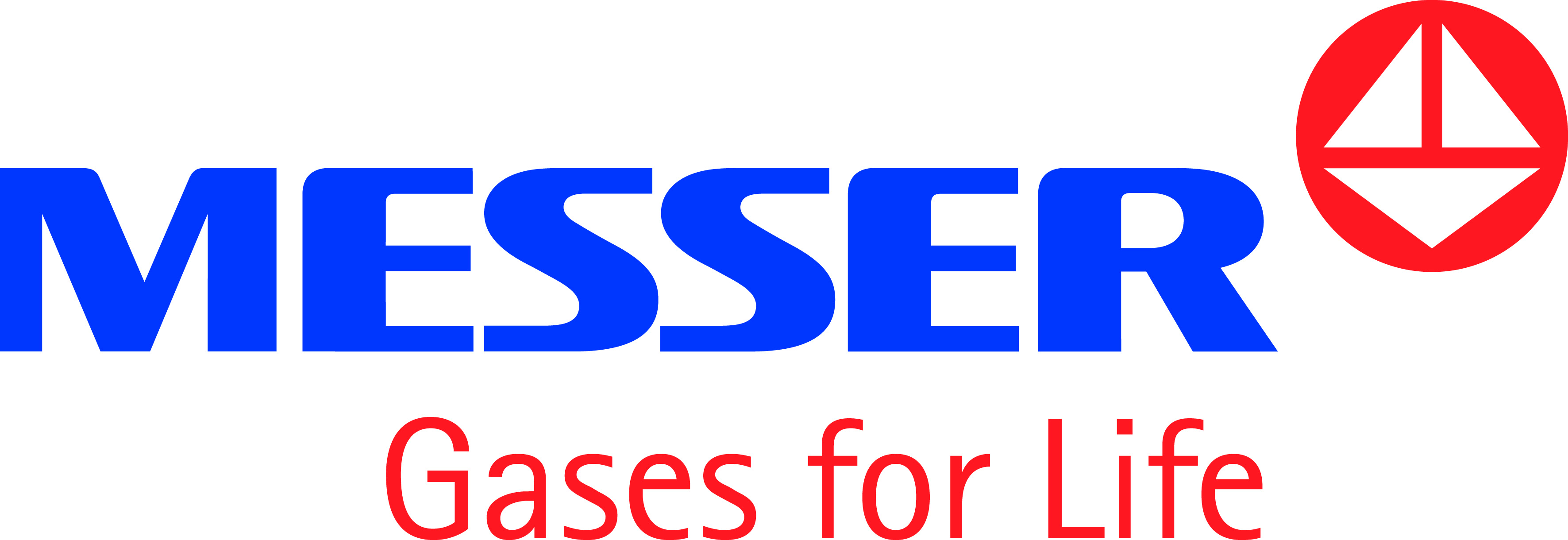CONFERENCE SPEAKERS
Plenary Speakers
Iulian Antoniac
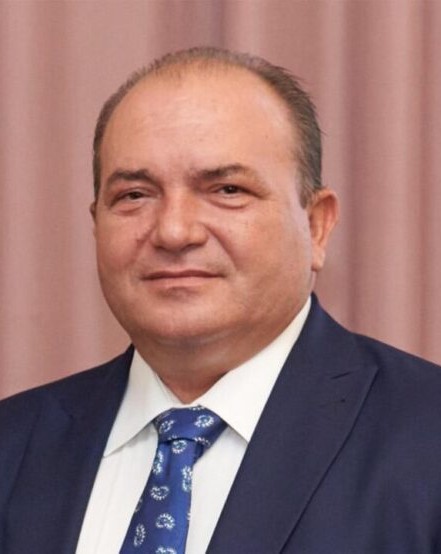
Short Biography: Iulian Antoniac is Full Professor in Materials Engineering and Biomaterials, Habil in Materials Engineering, Member of the Academy of Romanian Scientist, Member of American Romanian Academy of Art and Sciences, Past President of the International Society for Ceramics in Medicine (ISCM) and President of the Romanian Society for Biomaterials. He received his B.Sc., M.Sc., Ph.D., and Postdoc degrees in Materials Science at University POLITEHNICA of Bucharest.
Professor Iulian Antoniac research interests include biomaterials; bioceramics; coatings; biodegradable metals; biocomposites; metallic materials obtaining, characterization and testing; advanced techniques for surface characterization; microscopy techniques; functional materials; physical and chemical characterization of nano- and micro- particles for biomedical applications; implants for orthopedics and dentistry; advanced materials for smart industrial applications.
He has directed 12 PhD defended theses; member of the international commission for PhD thesis evaluation or promotion commission in different countries (Romania, Italy, Latvia, Turkiye, Russia); invited professor for teaching in other foreign universities from Israel, China, Portugal, Italy, Turkiye.
He is author of over 270 publications, with more than 3900 citations and Hirsh Index 37 according to Scopus database. He is Editor in Chief for the journal Materials Science Forum, editorial board member for other journals and reviewer for more than 50 journals.
Professor Iulian Antoniac have achieved in 2023 and 2024 the feat of ranking in the top 2% of the world's most cited scientists according to the latest ELSEVIER report, using the SCOPUS database and h-index, hm-index, adjusted for the number of co-authors, citations in different author positions and a composite index c-score.
The latest achievement of the Professor Iulian Antoniac was his election as Fellow of Biomaterials Science and Engineering (FBSE), in 2023, which was made by the International Union of Societies for Biomaterials Science and Engineering (IUSBSE). (http://iusbse.org/aboutus/). Fellows are recognized for a status of excellent professional standing and high achievements in the field of Biomaterials Science and Engineering. This is the highest honor the global biomaterials community can bestow on outstanding scientists. Iulian Antoniac, at the age of 51, is one of the youngest researchers in the field to be distinguished and is now joining as first Romanian member of this group of less than 500 of the most respected biomaterials scientists worldwide.
Lecture: Tomorrow's Healthcare: Current Trends and Directions in Bioengineering and Biomaterials Science
Peter Dubruel
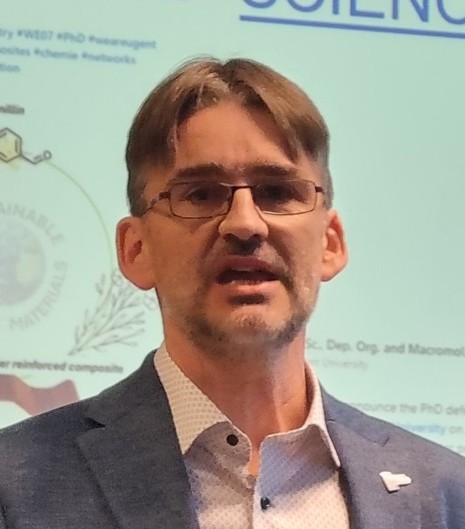
Short Biography: Since the very first contact with scientific research back in 1997 as final year master student in chemistry, Peter Dubruel has a huge passion for research. Both in his master and PhD thesis, he had the pleasure of working on the development of polymers for biomedical applications. Since end 2006, he is sharing his passion for research as Professor with master students, PhD, post-docs, his (inter)national collaborators and also while teaching.
Since end 2006, significant funding has been awarded yearly from IWT, FWO, EU, UGent (BOF, IOF), … to perform cutting edge research within the field of polymers for biomedical applications. This has led to the successful defense of more than 35 PhD theses and several patents. Every year, several master students have been supervised.
On the level of projects, the Polymer Chemistry and Biomaterials Group (PBM) has and is involved in a large number of national and international projects including EU-FP6, EU-FP7, H2020, ESA, IWT (O&O, PhD grants), FWO (post-doctoral and PhD grants), UGent (BOF, GOA and IOF) of which several ones coordinated.
Recognizing and training talent are an integral part of leadership. Since end 2006, 7 people that performed their PhD and/or post-doc within PBM, have been promoted as Professor in universities worldwide.
The PBM group is embedded in the Department of Organic and Macromolecular Chemistry (WE07) and the Centre for Macromolecular Chemistry (CMAC). It consists of a healthy mix of international and national scientists. The group is headed since end 2006 by Prof. Peter Dubruel and since 2018 together with Prof. Sandra Van Vlierberghe. The PBM group at UGent has the development of polymers for biomedical applications as core expertise. Research focusses on the development and characterisation of novel multifunctional polymers from both synthetic and biological origin. Examples include therapeutic polymers, biodegradable polyesters and hydrogel building blocks. Using these polymers, key application fields under study cover nucleic acid (DNA/RNA) delivery, orthopaedic (meniscus), ocular (macular degeneration), cardiovascular (stents and bypasses) and wound dressings (burns, ulcers).
Since 2021, Peter Dubruel is head of the Department of Organic and Macromolecular Chemistry within the Faculty of Sciences at UGent.
Lecture: The Do's and Don'ts of 3D Printed AUP Meniscal Substitutes
Ciprian Iliescu
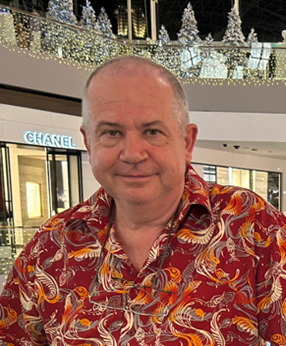
Short Biography: Dr. Ciprian Iliescu is currently the ERA Chair and Director of eBio-hub Centre of Excellence in Bioengineering @ National University of Science and Technology POLITEHNICA Bucharest. Dr. Iliescu is a true success story about how the experience gained in the industry can be efficiently capitalized in research by developing and implementing products and technologies with an excellent impact on the market. Dr. Iliescu has industrial experience (10 years in the semiconductor industry, leading industrial projects, involved in research-industry collaborations with Maxim Inc, Johnson and Johnson), research experience (18 years in a country with a research-driven industry, Singapore), a relevant number of journal publications and invited talks, cutting-edge research projects, reviewing and applying for research grants, teaching activity (supervised PhD students in Singapore, and in NUSTPB, delivered lectures, reviewed PhD thesis), and managerial involvement (spin-off a company with his PhD work and patent, managed and lead labs/research centers: set up and lead the "Microfluidic and Nanofluidic Laboratory" at IMT).
Lecture: Points of view in bioengineering: molecular diagnostic, transdermal drug delivery and nanomedicine
Rafael Luque
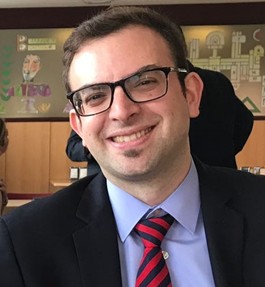
Short Biography: Rafael Luque (PhD in 2005 from Universidad de Cordoba, Spain) has significant experience in biomass and waste valorization practices to materials, fuels and chemicals including nanoscale chemistry, green chemistry and catalysis as well as environmental remediation with a particular interest on plastic waste (900+ publications, h-index 115, >55,000 citations, 7 patents, 10 edited books). He was named 2018-2022 Highly Cited Researcher (Clarivate Analytics) and received Honorary Professor titles (Doctor Honoris Causa) at Universitá degli studi Mediterranea di Reggio Calabria and RUDN University.
Prof. Luque is currently Head of B4 group (Bioresources, Biopolymers, Biotechnology and Biorefineries) and Project Director at National University of Science and Technology Polytehnica Bucharest (Romania), holding various positions as DFSP Chair Professor at King Saud University (Saudi Arabia), Distinguished Visiting Professor at University of Lahore (Pakistan) and International Distinguished Scientist and Rectoral Advisor at Universidad ECOTEC (Ecuador).
Lecture: Shaping the Future of Global Leaders: Insights and Directions in Bioengineering and Polymer Science
François-Xavier Perrin
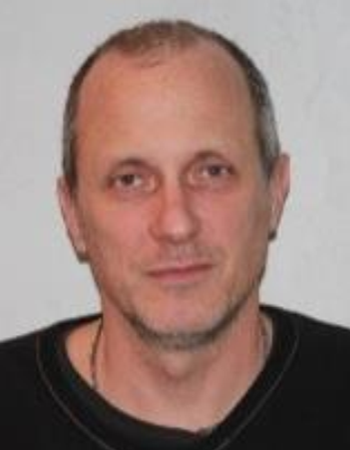
Short Biography: After graduating in chemical engineering from the University of Marseille, he completed a doctorate at the University of Besançon in France working on the electropolymerization of phenol derivatives and heterocyclic compounds. In 1998, he joined the MAPIEM Laboratory in the university of Toulon. Full professor since 2011, he is currently head of the chemistry department at the University of Toulon and head of the anticorrosion team in Mapiem laboratory. He has directed 18 theses and is the author of over 80 publications with 22 Hirsh Index according to Web of Science Citation Metrics. He contributed to fundamental and applied research with the development of new hybrid and nanocomposite materials by either bottom-up or top-down approaches. His research activity covers heterogeneous organic matrix systems, with a particular focus on the implementation of functional 1D or 2D nanofillers, notably those based on conductive polymers, nanocarbons and clays.
Lecture: Functionalized clay-based hydrogel composites for agricultural applications
Nele Pien
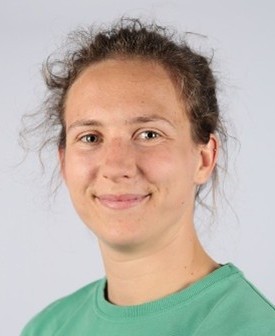
Short Biography: Dr. Nele Pien is a postdoctoral researcher at the Research Foundation Flanders (FWO) and Ghent University, specializing in biofabrication, scaffold-based tissue engineering, biomaterials, and stem cells. With a joint-PhD in Materials and Metallurgical Engineering (ULaval, Canada) and Science: Chemistry (UGent, Belgium), her research focuses on extrusion- and light-based 3D printing for regenerative medicine applications. She has extensive expertise in cell-lab techniques, biomaterial development and characterization, and advanced analytical tools.
Beyond her research, Dr. Pien is actively involved in academic mentorship, conference organization, and science communication. She serves as the Communication Manager for Ghent Advanced Therapies and Tissue Engineering (GATE), overseeing communication strategies, website management, and event organization. Additionally, she is a Board Member of the Belgian Society for Tissue Engineering (BSTE), contributing to the advancement of the field.
Lecture: From Material Design to Biofabrication: Advancing Light-Based 3D Printing for Tissue engineering
Dario Puppi
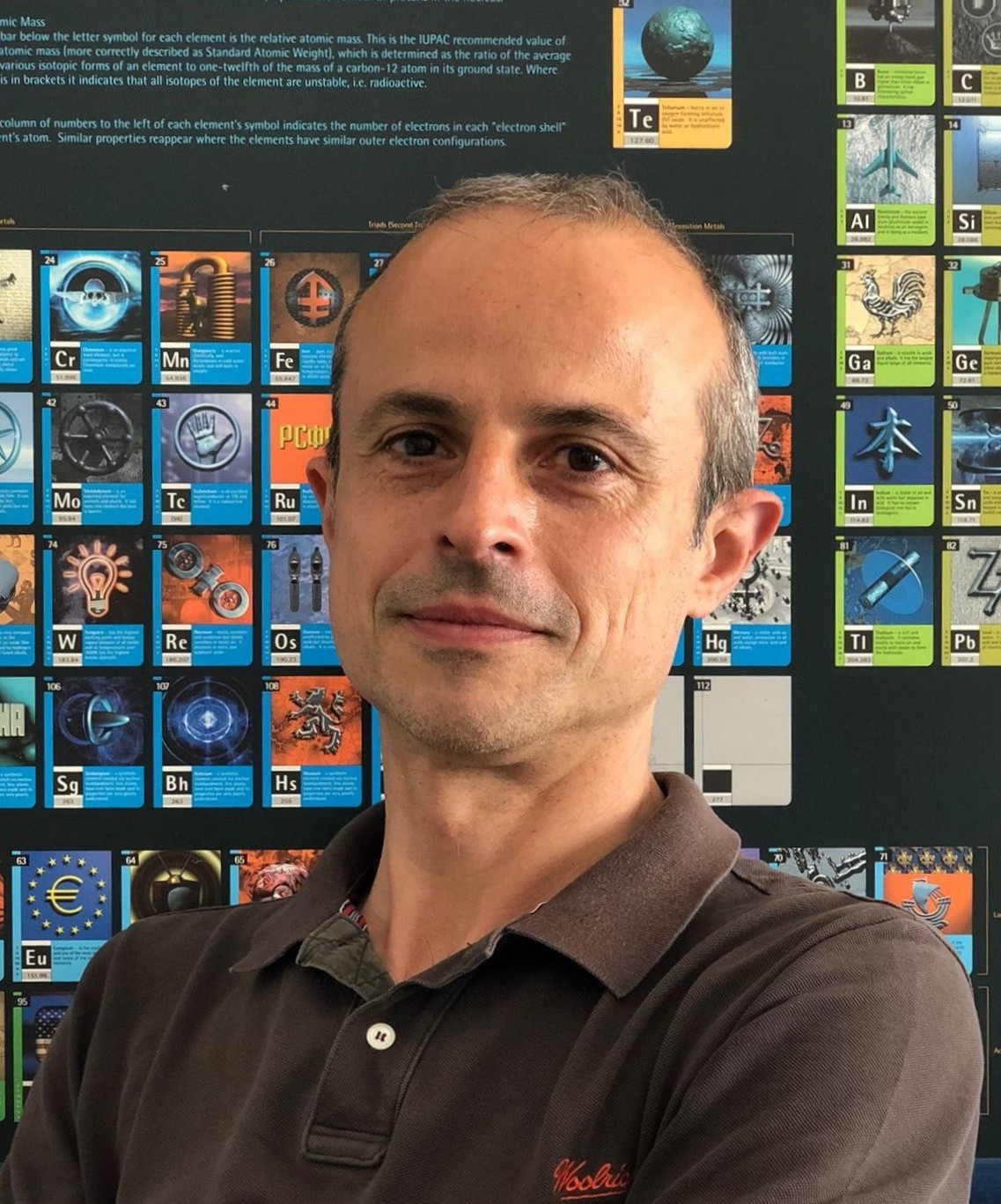
Short Biography: Dario Puppi received from the University of Pisa, Italy, an MSc in Chemical Engineering (2005) and a PhD in Biomaterials (2009). He carried out research stays at various foreign universities, including Tampere University of Technology (Finland), University of Sheffield (UK) and University of Minho (Portugal). He then worked as a post-doc on various research projects at the University of Pisa (Italy) and the National Research Council, CNR (Italy). In September 2019 he was appointed as a Junior Researcher and in January 2022 as a Senior Researcher at the Department of Chemistry and Industrial Chemistry at the University of Pisa (Italy). From January 2025 he has been employed as an Associate Professor of Industrial Chemistry in the same department.
His research interests mainly concern the investigation of synthetic and natural polymers to develop polymeric materials for biomedical, pharmaceutical, and other industrial applications. He is the co-author of more than seventy-five scientific articles in peer-reviewed international journals, nine book chapters, four patents, and various invited oral presentations at international conferences (citations > 3600, h-index: 32, based on Scopus database). He was included on the Stanford/Elsevier list, which highlights the top 2% of scientists cited globally in 2022 and 2023.
Stephan Roche
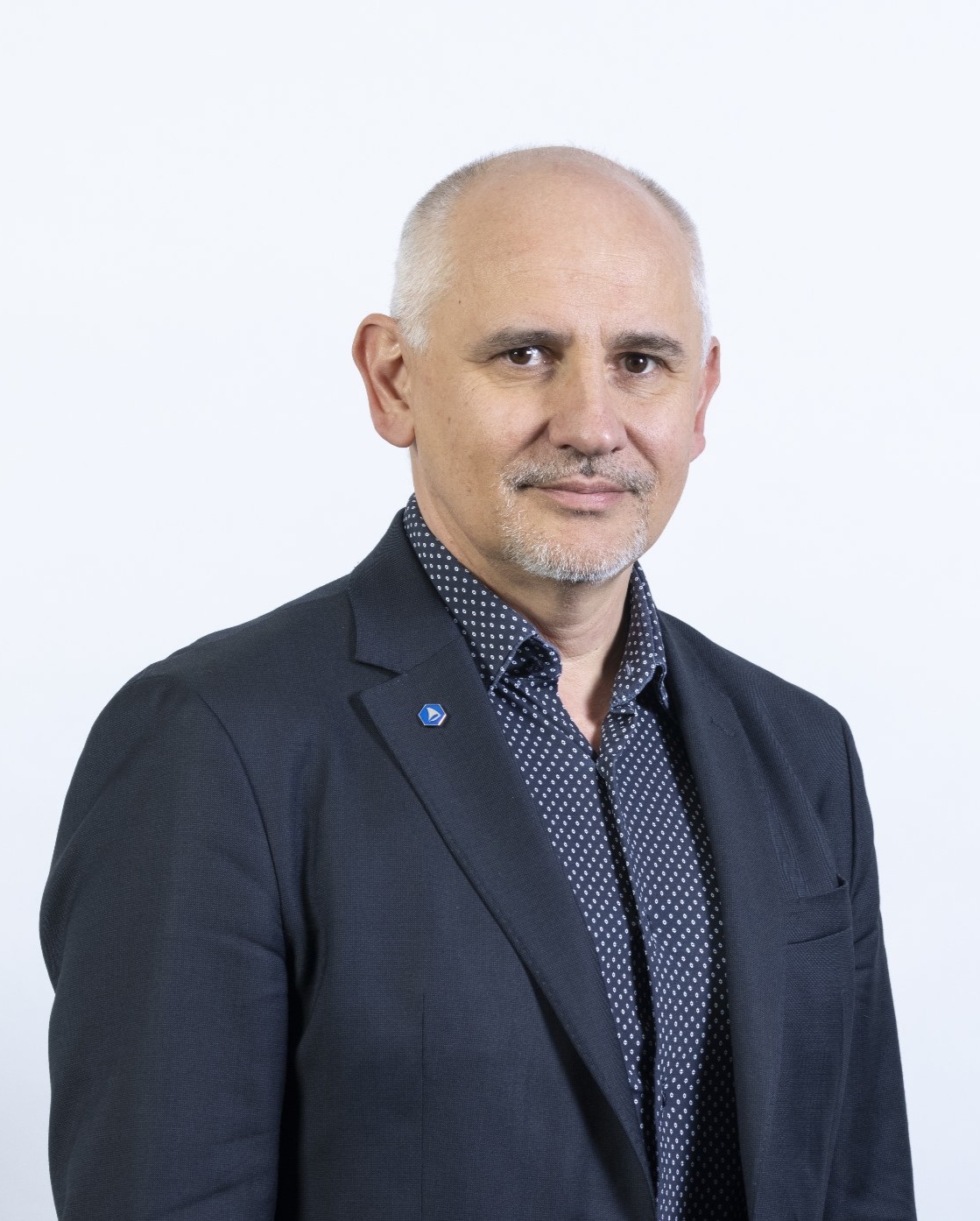
Short Biography:Prof. Stephan Roche is ICREA Research Professor since 2009, head of “Theoretical & computational Nanoscience Group” at the Catalan Institute of Nanoscience and Nanotechnology in Barcelona (Spain), www.icn2.cat. He is a theoretical physicist, expert in two-dimensional materials physics, topological matter and disordered materials, as well as expert of charge (quantum) transport in condensed matter, spin physics, large-scale quantum simulations and device modelling. He pioneered and is leading the development of linear scaling transport approaches, enabling unrivalled simulations of large-scale (disordered) models (www.lsquant.org), which are now efficiently connected with Artificial Intelligence (AI) tools providing unprecedented ab-initio accuracy of properties simulation in trillion atoms scale models. S. Roche is a Friedrich Wilhelm Bessel awardee (Alexander Von-Humboldt Foundation, Germany) and has worked as PhD, postdoc, assistant professor, research staff and visiting researchers at many institutions such as at French CNRS and CEA, University of Valladolid (Spain), Donostia International Physics Center (San Sebastian, Spain), University of TU-Dresden (Germany), National University of Singapore, University of Tokyo and Tohoku University (Japan). He has collaborated and be funded by large companies such as NEC (Japan) and Samsung (South Korea).
S. Roche has co-authored more than 300 journal papers (WoS), including Rev. Mod. Physics, as well as more than 40 publications in Physical Review Letters & Nano Letters, and 15 papers and reviews in Nature series (Nature, Nature Nanotechnology, Nature Physics, Nature Materials and Nature Communications). A full list of publications is available at Google Scholar Profile
He has served for ten years as Spintronic workpackage leader in the Graphene Flagship (GF) and as DIVISION leader on “Enabling Science and Materials”, and as such he was member of the management panel of the GF. He is currently involved in the IAM4EU initiative (www.iam-i.eu) and has been appointed to coordinate efforts for promoting the deployment of AI in the innovation processes of advanced materials.
He is Editor in Chief of J. Phys. Materials from IoP and one of the main organisers of key international conference series GRAPHENE 20XX https://www.grapheneconf.com and since QUANTUM MATTER 20XX https://www.quantumconf.eu and AI4AM https://ai4am.net/.
Lecture: Graphene-based materialsfor (bio)applications: the need & emerging role of Artificial Intelligence
Hari Srikanth
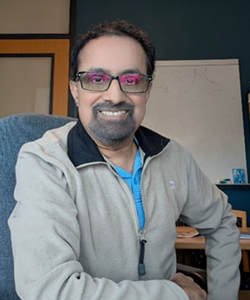
Short Biography: Hari Srikanth is a Distinguished University Professor at the University of South Florida (USF), where he has been a faculty member since 2000. He leads the Functional Materials Laboratory and serves as the Director of the Florida Institute of Emergent Low-Dimensional Quantum Materials (FIELD-QM). Hari earned his Ph.D. in experimental condensed matter physics from the Indian Institute of Science, Bangalore. His research spans a broad range of topics, including quantum materials, magnetism, and nanoscience. Over his career, he has graduated 24 Ph.D. students and mentored more than 15 postdoctoral scholars. He has authored over 320 journal publications, accumulating 12,500+ citations with an h-index of 65, and has delivered more than 225 invited talks worldwide. In recognition of his contributions, Hari was named an IEEE Magnetics Society Distinguished Lecturer in 2019. He is a Fellow of the American Physical Society (APS), a Fellow of the Institute of Physics (IOP), and a Senior Member of IEEE. He currently serves as an Associate Editor for Physical Review B, the world’s largest journal in condensed matter physics. Hari has been actively involved with the MMM and INTERMAG conferences for over 20 years, serving in various roles, including Publication Editor, Publication Chair, and Program Committee Member. He is the Special Events Chair for MMM 2025 and serves on the IEEE Magnetics Society Administrative Committee (AdCom). His achievements have been recognized with prestigious honors, including the Alexander von Humboldt Research Award and the Fulbright Scholar Award.
Lecture: Functional magnetic nanoparticles for biomedical applications
Google Scholar ProfileUniversity of South Florida Profile
Mihaela Stefan

Short Biography: Mihaela C. Stefan received her B.S. in Chemical Engineering and Ph.D. in Chemistry from Politehnica University Bucharest, Romania. She worked as a Postdoctoral Researcher in Matyjaszewski’s group at Carnegie Mellon University from 2002 to 2003. She also worked as a Research Scientist in Richard D. McCullough's group at Carnegie Mellon University on the synthesis of block copolymers containing semiconducting polythiophenes.
She joined the Department of Chemistry and Biochemistry at the University of Texas at Dallas in 2007, and she is currently a Eugene McDermott Professor and Department Head. She received the NSF Career Award in 2010, the NS&M Outstanding Teacher Award in 2009 and 2017, the Inclusive Teaching Diversity Award in 2012, the President’s Teaching Excellence Award in 2014, Provost’s Award for Faculty Excellence in Undergraduate Research Mentoring in 2015, and Provost’s Award for Faculty Excellence in Graduate Research Mentoring in 2021. She also received the Wilfred T. Doherty Award from the Dallas Forth Worth Local Section of the American Chemical Society in 2021. Her research group is developing novel organic semiconductors for organic electronics, biodegradable and biocompatible polymers for drug delivery applications, and rare novel catalysts for polymerization of dienes and cyclic esters. At the University of Texas at Dallas, she supervised 44 graduate students, and 28 Ph.D. students graduated with a Ph.D. in Chemistry under her supervision. She also mentored ~150 undergraduate students who worked on her research lab on various projects.
Google Scholar Profile
UTDallas Profile
Stefan Group UTDallas
Lecture: Catalytic Activity and Magnetic Properties of Lanthanide Phosphates
Tiberiu Totu

Short Biography: Dr. Tiberiu Totu is an expert at Agroscope, which is the Swiss Confederation's center of excellence for agricultural research, affiliated with the Swiss Federal Department of Economic Affairs, Education and Research. His activity is centered on the development and implementation of proteogenomics solutions for the community, advancing genome assembly quality and bridging the gap between the genotype-phenotype relationships. Throughout his academic career, he focused on developing software tools and data analysis methods to advance our understanding of various diseases and organisms biology. He is an engineer by formation, having graduated the Electronics Engineering Faculty at the University Politehnica of Bucharest, further trained as a life sciences engineer at EPFL - Swiss Federal Technology Institute of Lausanne, and finally specialized in bioinformatics and biostatistics during his PhD at ETH Zurich. His main expertise lies in multi-omics integration algorithms, ranging from genomics to proteomics and metabolomics, as well as bioinformatics tool development. He is passionate and committed to ensuring that his work has a direct impact on both the community and society. He enjoys teaching and has coordinated workshops at ETH Zurich to introduce scientists from diverse fields to the concepts of multi-omics integration and the available analytical tools. The tools he developed and deployed online have a significant global impact, receiving dozens of analysis requests per day from scientists around the world. He participated in research projects aiming to pioneer the field of cancer research, his analysis results highlighting pathways essential for the understanding of disease mechanisms and uncovering potential therapeutic targets.
Lecture: Multi-Omics Data Integration: Advancing Community-Oriented Tools to Meet Tomorrow's Needs
Keynote Speakers
Madalina Georgiana Albu Kaya
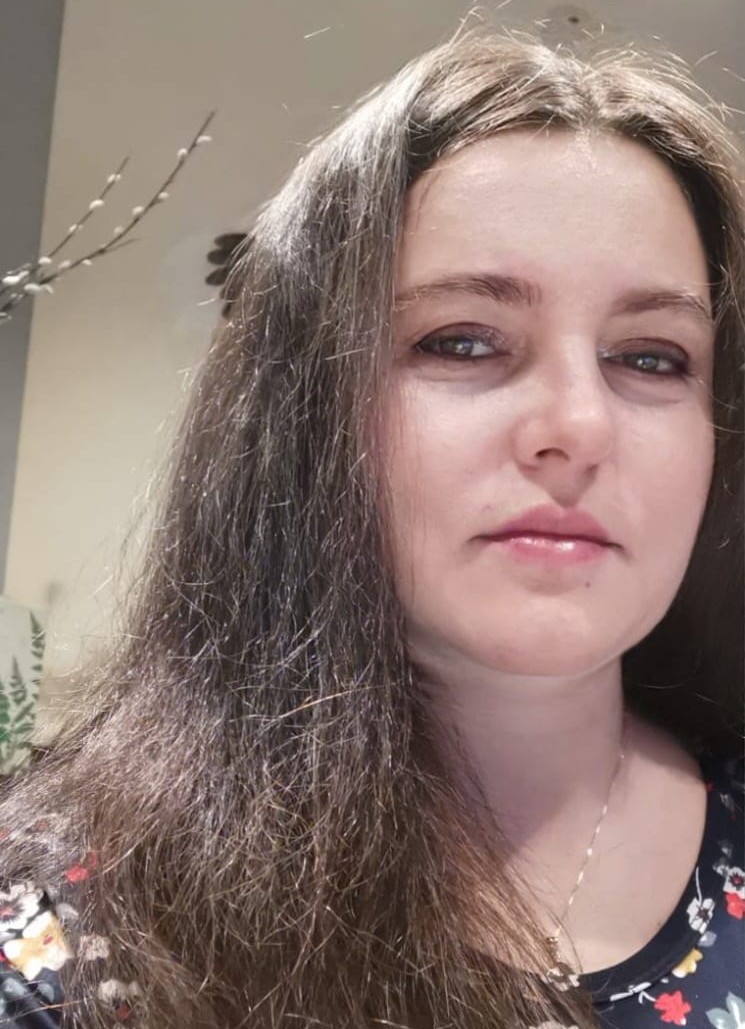
Short Biography: Dr. Madalina Georgiana ALBU KAYA has been working since February 2001 for INCDTP - Leather and Footwear Research Institute and leads the Collagen Department. She is First Degree Researcher who obtained her diploma degree, master and PhD at the University of Bucharest, Faculty of Chemistry and two Postdoctoral studies, one in Biotechnology at University Politehnica of Bucharest and one in solid state NMR at Osaka University, Japan. At present she has a H index 28 and over 2000 citations and focuses the research activity in the field of collagen processing, characterization and application especially as biomaterials for medicine, dentistry, pharmacy and cosmetics. She developed and put on the market medical devices and cosmetic products and is studying new generation of biomaterials which are in different levels of biological, pre-clinical or clinical investigation. Her scientific activity comprises: books (12); papers published in SCI journals (over 200); patents (20) and patent application - 10; participating in research projects (81); gold medals (53) and special awards (51) for innovation.
Lecture: Sturgeon collagen - new source for fabrication of medical devices
Mariana Ionita

Short Biography: Mariana Ionita was educated at top level universities (Politecnico di Milano, Technical University of Denmark, Universita degli Studi di Milano) and gained her PhD in Chemistry and in Bioengineering in 2008 from Politecnico di Milano. Thereafter she was appointed Professor and project co-coordinator at Faculty of Medical Engineering, Politehnica Bucharest. Mariana has an outstanding contribution related to bone tissues regeneration solution and additive manufacturing / 3 D printing topic in which she emerged as a game changer achieving structures with predictable bone tissue regenerative performance or fine-tuned structures with anisotropic mechanical properties. She has co-authored four research monographs, more than 95 peer reviewed scientific papers, and participated in over 50 different scientific events as keynote and invited lecturer.
Victor Jerca
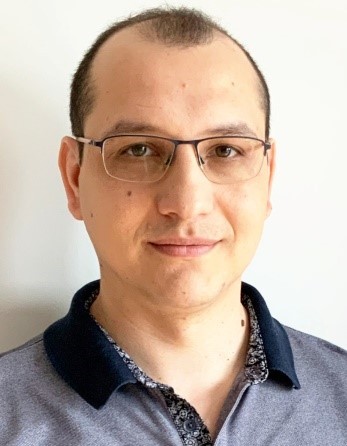
Short Biography: Dr. Victor Jerca is heading the Smart Organic Materials Group (SOM) from "Costin D. Nenitzescu" Institute of Organic and Supramolecular Chemistry, Romanian Academy, where his research centers on designing and developing multifunctional materials for cutting-edge applications. He obtained a PhD in Chemical Engineering from University POLITEHNICA in Bucharest under the supervision of Prof. Dan Sorin Vasilescu and performed postdoctoral research with Prof. Dan Sorin Vasilescu (University POLITEHNICA in Bucharest) and later with Prof. Richard Hoogenboom (Ghent University). Dr. Jerca has published more than 80 refereed scientific articles, 4 book chapters (Springer Nature, Elsevier, RCS) that have received 1500+ citations (h-index 22) and is the recipient of the Romanian Academy prize "Costin D. Nenitzescu" awarded in 2012.
The SOM Group is particularly known for pioneering work on poly(2-isopropenyl-2-oxazoline) and for developing light-responsive polymer systems with multifunctional capabilities. These materials are being explored for a wide range of advanced applications, including chemical sensing, nonlinear optics, diagnostics, and next-generation healthcare technologies.
Lecture: Crosslinked Possibilities: The Expanding World of Poly(2-isopropenyl-2-oxazoline)-Based Hydrogels
Madalina Musat
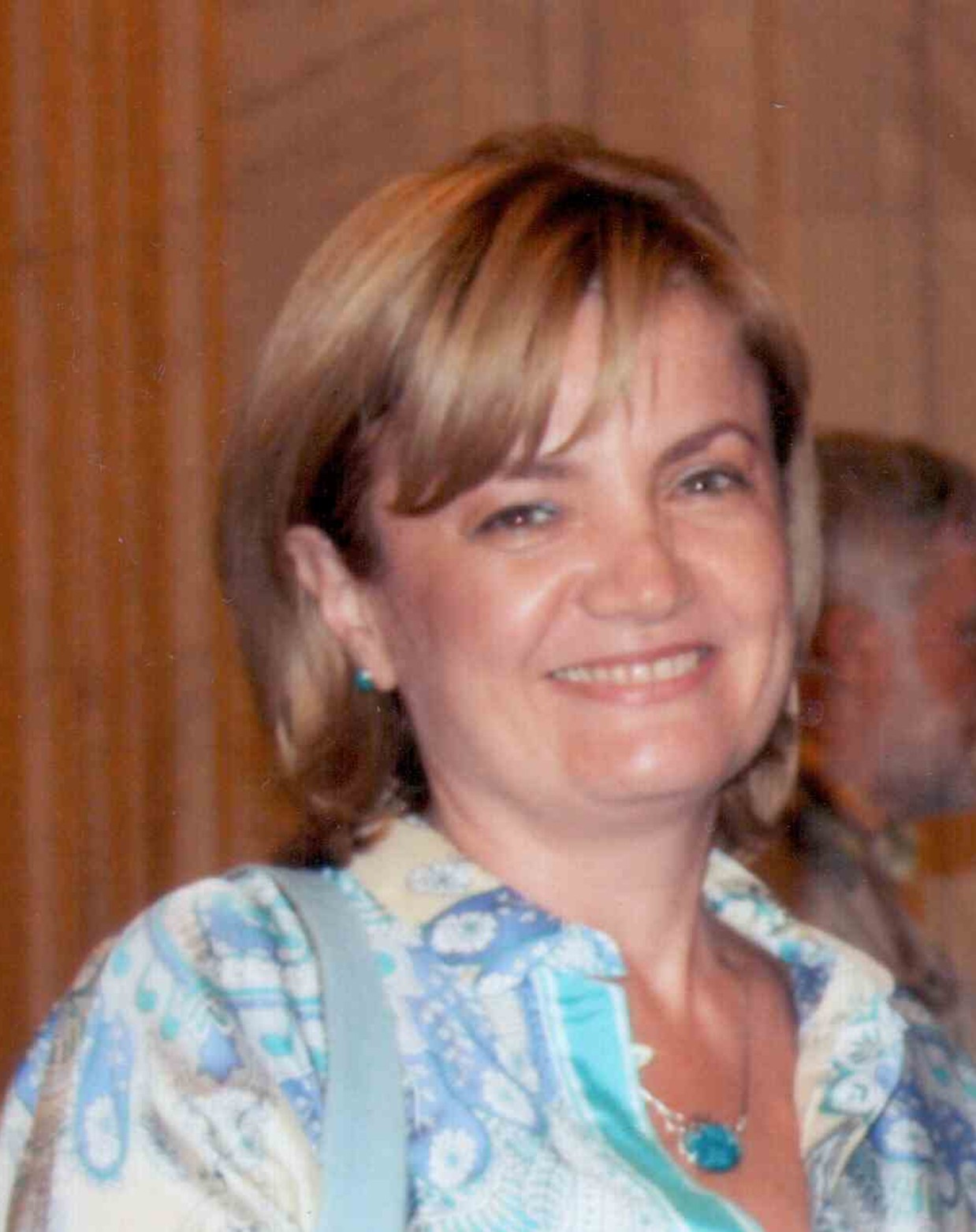
Short Biography: Associate Professor Madalina Mu?at graduated from Carol Davila University of Medicine and Pharmacy in 1994 and pursued a career in academic clinical endocrinology. After becoming a Specialist in Endocrinology in 2000, she has furthered her PhD studies in molecular endocrinology at Bart�s and the London School of Medicine, deciphering cell cycle dysregulations in pituitary tumors, between 2001 and 2004.
She has continued research in the field of genetics of familial pituitary tumors as a member of the international FIPA Consortium since 2010.
Since 2019 dr. Musat has become Associate Professor of Endocrinology at Carol Davila University of Medicine and Pharmacy.
At C.I. Parhon National Institute of Endocrinology dr. Musat has served as a Head of Department in Endemic Goiter between 2017 and 2022 and currently works as consultant in Endocrinology and Diabetes.
Her main areas of interest in clinical research: endocrine tumors, thyroid disorders, obesity and metabolic syndrome.
Since 2023 Prof Musat has joined e-Bio Hub Chair of Research Centre in Biomedical Engineering, as a Steering Committee member, at National University of Science and Technology POLITEHNICA Bucharest.
Professor Musat has actively participated in medical conferences, presented and and published numerous scientific articles and several book chapters in the endocrinological field.
Lecture: Thyroid Cancer Diagnosis and Treatment Challenges - The Place for AI Improvement
Nurxat Nuraje
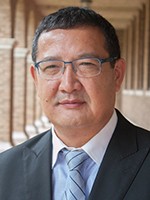
Short Biography: Dr. Nuraje is currently a full Professor in the Department of Chemical and Materials Engineering, School of Engineering and Digital Science at Nazarbayev University and also the Head of the Renewable Energy, National Laboratory Astana. Before joining Nazarbayev University, he held an Assistant Professor position at Texas Tech University, USA, and was a postdoc and research scientist in the Department of Materials Science and Engineering at Massachusetts Institute of Technology (MIT), USA.
Dr. Nuraje's research focuses on synthesis of functional materials and their applications in renewable energy field. Furthermore, He has been investigating the fundamental of photocatalytic hydrogen production via designing the heterostructured systems. Ultimate goal of the research is to improve Solar to Hydrogen (STH) efficiency. His another research area is to design various nanostructures of conducting polymers including 2D-, and 3D and investigate the relationship between their structure and property. Through designing the conducting polymer nanomaterials, he will solve the problems in renewable energy field. Besides, he is also developing a new technology in producing pharmaceutical active ingredients using Biomass as renewable source.
Lecture: Nano-Structured Conducting Polymers and Their Nanocomposites: From Synthesis to Applications
Izabela Stancu
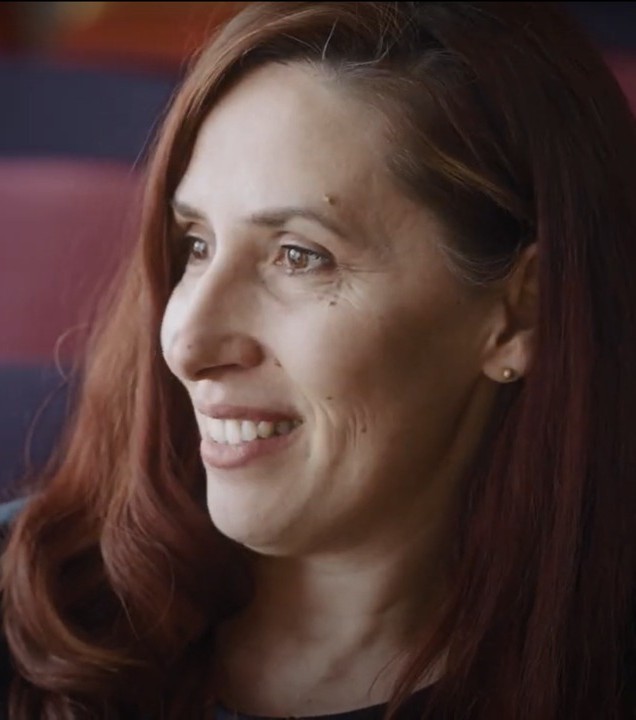
Short Biography: Prof. Izabela Stancu is a Full Professor at the National University of Science and Technology Politehnica Bucharest and Vice Dean for Research and International Collaborations at the Faculty of Medical Engineering. A PhD in Chemistry (University Politehnica of Bucharest) and a PhD in Biological and Medical Engineering (University of Angers) obtained for a co-tutored PhD thesis on biomaterials for bone reconstruction, a Marie Curie postdoctoral fellowship at Technische Universitat Dresden on label free detection on functional proteomics and a second postdoctoral fellowship at Polymer and Biomaterials Group at University Gent paved the way to a bio-inspired research journey to develop nanostructured biomaterials, extracellular matrix analogues and interfaces promoting advanced tissue integration and tissue regeneration.
She leads a dynamic research team within the Advanced Polymer Materials Group, focusing on the engineering, (bio)fabrication, biofunctionalization and characterization of bioinspired hydrogels and nanomaterials for tissue regeneration with a main interest in bone and osteochondral units, peripheral nerve regeneration, wound healing, and antimicrobial applications
Her work bridges academia and industry, involving strong collaborations with national and European partners, and is supported by funding from UEFISCDI (Romania), the Research Council of Norway, and the European Union.
Prof. Stancu has received scholarships and awards for scientific excellence from institutions such as UEFISCDI, the Romanian Society for Biomaterials, Plan Etat - Region Pays de la Loire and she supervised the PhD mobility within the Racquel LeGeros Award 2023 from the European Society for Biomaterials. She is actively involved in mentoring undergraduate and postgraduate students and contributes to international scientific boards and advisory committees.
She also serves as Romania's national representative in the Bioeconomy Group of the Health and Bioeconomy Cluster - ROHEALTH and served in the European Commission's joint risk assessment group on biotechnologies.
Google Scholar | ORCID
Guillaume Tresset

Short Biography: Guillaume Tresset received his master in electrical engineering from Supélec and prepared his PhD in physics at the Commissariat à l'Energie Atomique (CEA) in France. He worked as a postdoc at the University of Tokyo on microfluidic devices for biomolecular systems, then at the Institute of Bioengineering and Nanotechnology in Singapore on virus-like particles for gene delivery purpose. He is now a senior research scientist at the Centre National de la Recherche Scientifique (CNRS), and he serves as deputy director of the Laboratoire de Physique des Solides at the Université Paris-Saclay. His research activities focus on the physics and engineering of self-assembling bio-inspired systems.
Lecture: Disruption of the self-assembly pathway of hepatitis B virus capsid by antivirals
Stefan Ioan Voicu

Short Biography: Stefan Ioan Voicu is Professor at the Faculty of Chemical Engineering and Biotechnologies, director of Departament of Analytical Chemistry and Environmental Engineering. He started his career as Assistant Professor in 2009, with a Bachelor in Organic Chemistry (from 2005), Ph.D. in Polymeric Membranes (from 2008), and Habilitation in Chemical Engineering (from 2016). He published 15 books and book chapters (Wiley, Springer Nature, Elsevier), >80 peer reviewed scientific papers with Hirsch index 36, total number of citations 4200+ (according to Scopus database). The main research interests are related to polymeric membranes for biomedical applications with outstanding contributions in the field of surface functionalization methods for hemodialysis and osseointegration and polymeric membranes for water purification (first report in literature for membranes with self-indicating properties, that change the color surface during filtration process). Except academic activity, Prof. Voicu has also experience in the field of industrial research, being for two years Research Scientist at Honeywell Automation and Control Solutions, Sensors Laboratory with numerous international patents for researches developed in the field of metallic surface functionalization for SAW chemical sensors. He served as editor at different prestigious publishing houses, like Elsevier or Springer Nature.
Lecture: Advances in Polymeric Membrane Materials Synthesis for Hemodialysis and Osseointegration
Elena Zaborova

Short Biography: Elena Zaborova is Assistant professor at Interdisciplinary Center of Nanoscience of Marseille (CINaM), Aix Marseille University.
She obtained her Ph.D. in organic and supramolecular chemistry at the University Pierre and Marie Curie in Paris under direction of Pr Matthieu Sollogoub (2010). During 3 years of postdoctoral fellows she worked on design of new Janus tectons for supramolecular self-assembly, synthesis of donor materials for organic photovoltaics and elaboration of multimodal cyclic chiral catalysts. She was appointed as assistant professor at Aix Marseille University in 2014. Her current research interest is mainly focused on the synthesis and photophysical studies of the materials for organic photovoltaics and OLEDs. She is the co-author of more than thirty-five articles in peer-reviewed international journals and of one patent.
Lecture: New Dyes for Optoelectronics
Catalin Zaharia

Short Biography: I am a Professor of Polymer Science at the National University of Science and Technology POLITEHNICA Bucharest, where I also serve as the Head of the Department of Bioresources and Polymer Science and Scientific Director of Advanced Polymer Materials Group. I hold a particular fascination for 3D printing technologies such as FDM, SLA, and bioprinting, as well as organ-on-a-chip platforms. I have also a strong interest in polymer processing, polymer synthesis and polymer recycling.
I hold a Ph.D. in Engineering Sciences, which I earned from Politehnica University in 2007. Additionally, I obtained a Ph.D. in Cell Biology from the University of Angers, Faculty of Medicine, France in 2009. Over the course of my career, I have been actively involved in numerous research projects, serving in roles ranging from coordinator and director to team member, totaling over 50 projects. Notably, I led an interesting project from 2021 to 2023 on the development of non-viral vectors based on polymeric nanoparticles for cancer gene therapy.
My research portfolio comprises 99 ISI quoted papers, along with authored books covering various aspects of polymeric materials, biomaterials, solar cells, polymer processing, and additives for polymer processing. Furthermore, I have presented numerous oral and poster presentations at international conferences and have been invited to deliver lectures on these topics. Currently, I serve as an editorial board member of Discover Polymers (Springer Nature) and Current Green Chemistry (CGC). I am also a member of the Reviewer Board for Polymers (IF 4.7) and Gels (IF 5.0), as well as a Guest Editor for Materials (IF 3.1), Applied Sciences (IF 2.5), Frontiers in Pharmacology (IF 4.4), and Polymers (4.7).
Lecture: CIRCULAR SOLUTIONS FOR ADDITIVE MANUFACTURING: BIO-BASED COMPOSITES WITH CATALYTIC POTENTIAL


